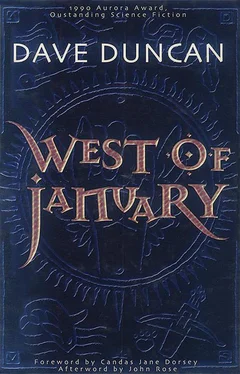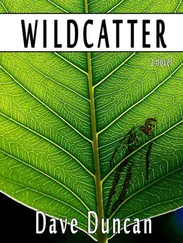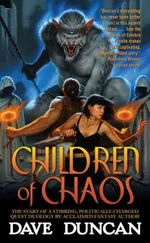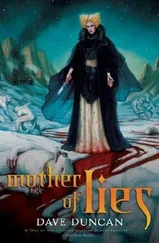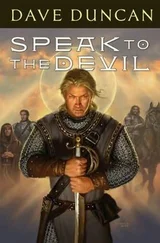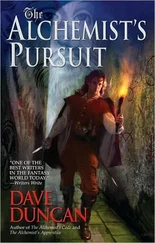This, I think, had been an unusually long trek, or else I was a very young herder still, for I had been allowed to ride part of the way on one of the baggage woollies. But we had arrived at last. My father had ridden in, also, having satisfied himself that no dangers lurked in the vicinity. I was jumping up and down in my eagerness to rush over to the new pond and fall in, for we youngsters lived more in the water than out of it, but before anything else happened, the whole family had to give thanks to the Almighty for leading us safely to this haven. That meant that we had to wait for the older children who were bringing up the herd. Woollies cannot be hurried.
Native to the hot lands of Wednesday, woollies seldom stray even into the southern edges of Tuesday. For all their enormous size, they are very primitive. Their dense siliceous coats maintain the high body temperature they need and also protect them from predators. Woollies never move faster than a walk, but they never stop moving—rounded stacks of gray wool, eating constantly, crawling endlessly over the landscape, with only a short pink snout protruding at the front. They have three small eyes in the snout, although they see poorly. Turn the snout with a stick, and the woollie will change direction.
The woollies loomed as large in my childhood as the unbounded land itself or as the burning-metal sky. I took them all equally for granted, essential components of a world.
At last the herd crept into view over a distant ridge. The herders came running in to join us, and my father called for the first hymn. After that he led us in prayer and then a second hymn. We children sang almost all the time, but his strong bass voice inevitably reminded me of thunder. Our faith was simple: we believed in a Heavenly Father who must be obeyed. If we were good, we would go to Paradise; else, to Hell. I grew up believing that Paradise must be very much like the grasslands, with a plentiful supply of dashers for food and miniroos for sport. Hell, I had been informed, was cold and dark. As I had never met either cold or dark, my ideas of Hell were vague. It mattered little, for we had few opportunities to be bad.
As soon as the service was ended, we small ones raced off to enjoy our bath. Some older children were sent to guide the herd again, for woollies are too stupid to be natural herd animals and would scatter like seeds if left unattended. Several boys headed for a nearby miniroo warren to launch a massacre—looking back, I am sure they benefited more from the exercise than from any meat they caught, although a miniroo is a tasty treat when spitted, charred over hot coals, and eaten whole. The women had a fire to build, tents to pitch, and screaming children to feed. Babies were always raised on woollie milk so that their mothers could conceive again as soon as possible.
When I came dripping back to report on the pond, I found Aunt Amby and my mother just about to milk one of the baggage woollies before it was returned to the herd. They had enlisted the aid of Kanoran, largest of the boys. Each took a travois pole, thrust it under the beast, and heaved. It always seemed like a miracle that human muscles could move such a mass, but slowly the woollie toppled over on its side. As long as its snout was then held off the ground, it was helpless and could be milked—unless it contained a dasher. This one did.
Pink and hairless and incredibly fast over short distances, the dashers are the woollies’ males. They live on milk from the rear teat—the front teat is for the young—and they have no teeth. They do, however, have truly vicious claws. A dasher roasted is the finest feast in all Vernier, and catching them was the greatest sport in our childhood. Like all herdmen, I still bear dasher scars. The wounds can easily go bad, and I lost several brothers to the game; my sisters always seemed to have more sense.
Of course, the dasher did what dashers always do—streaked to the nearest woollie to take cover. As often happens, there was already another in residence. One or the other—they cannot be told apart until they start wounding each other—emerged at once and headed for another woollie. The procedure was due to be repeated until the refugee found a vacancy or was killed, but in this case Kanoran made a wild leap and threw himself on the second dasher—or perhaps it was the first dasher at its second appearance—and expertly snapped its neck before it clawed him to shreds.
To kill a dasher single-handed was a noble feat. Kanoran proudly delivered his prey to the cooks and then went strutting around, letting us lesser folk admire his gashes while they were still bleeding. And admire we did, secretly wishing we had some like them. The girls started singing a hero’s song.
Milk and woollie meat were our staple diet; roast dasher was our delicacy. Soon everyone not herding had drawn close, tugged by that seductive odor. Even my father, who had been grooming his horses, came striding over, the currycomb still in his hand.
We all rose, of course, even the toddlers. One of the women said timorously that the feast was not quite ready yet, but my father ignored her. He was staring hard at Kanoran, as if he had been overlooking him recently. Proud hero shrank into cowering boy beneath that fearsome gaze.
“Raise your arms, lad.”
Kanoran obeyed in silence, a guilty pallor seeping into his face. One of the women—his mother, I suppose—choked back a sob at what was then revealed, and I think it was that more than anything else that imprinted the scene on my memory. I was certainly too young to understand what terrible sin had been committed. The meal was forgotten. My father glanced at Aunt Amby, and the distress in her face disturbed me even more.
“Olliana, sir?” she whispered.
He thought for a moment, then nodded. He led the trembling Kanoran aside. They walked together up a nearby hillock. They sat down and talked. My father talked; his son listened.
He was a good man. Some herdmen take the word loner at its literal meaning. I saw this done later, but my father was not so cruel. Indeed, he was generous. I do not know what facts of life were imparted in those talks, for I never received one, but I suppose only the obvious—sex and how it worked; custom and dangers; angels, perhaps, and traders; and certainly the incest taboo, for the herdfolk take that rule very seriously.
When the long talk was ended, Olliana was waiting, dressed in a fine new wool robe of many colors. On her back she carried a bundle that the women had made up for her—food, I expect, and a knife, and a pot maybe, and tinder. Eyes downcast, she walked at her brother’s heel as he left the camp.
However much his inner self may have quaked, Kanoran bore his head up bravely as he walked away into the world. He did not look back at us sobbing children. He wore only his calf-length woolen pagne. He carried only a sling but he was allowed to take four woollies, and two people could live easily on the milk from four woollies. Some fathers gave more than four then, but few gave a woman as well. In those times a woman was worth ten or a dozen woollies. Later the price dropped to one or two.
Woollies move slowly. The tiny herd of huge creatures was visible for a long time, trailing slowly away over the ridges. The boy and girl beside them were smaller, and they vanished sooner.
I saw this scenario happen many times as my brothers and half-brothers grew older—footprints on my trek through childhood. My father, I suppose, was aging; thus, his family also. Puberty rites came more frequently as I grew to be a herder, helping the older children at first, then teaching youngsters in my turn. Never did we think of herding as work. It was what life was. Children herded woollies. Women cooked and made babies. They also spun wool; they wove and dyed and sewed cloth. Men—but we only had one man to study.
Читать дальше
